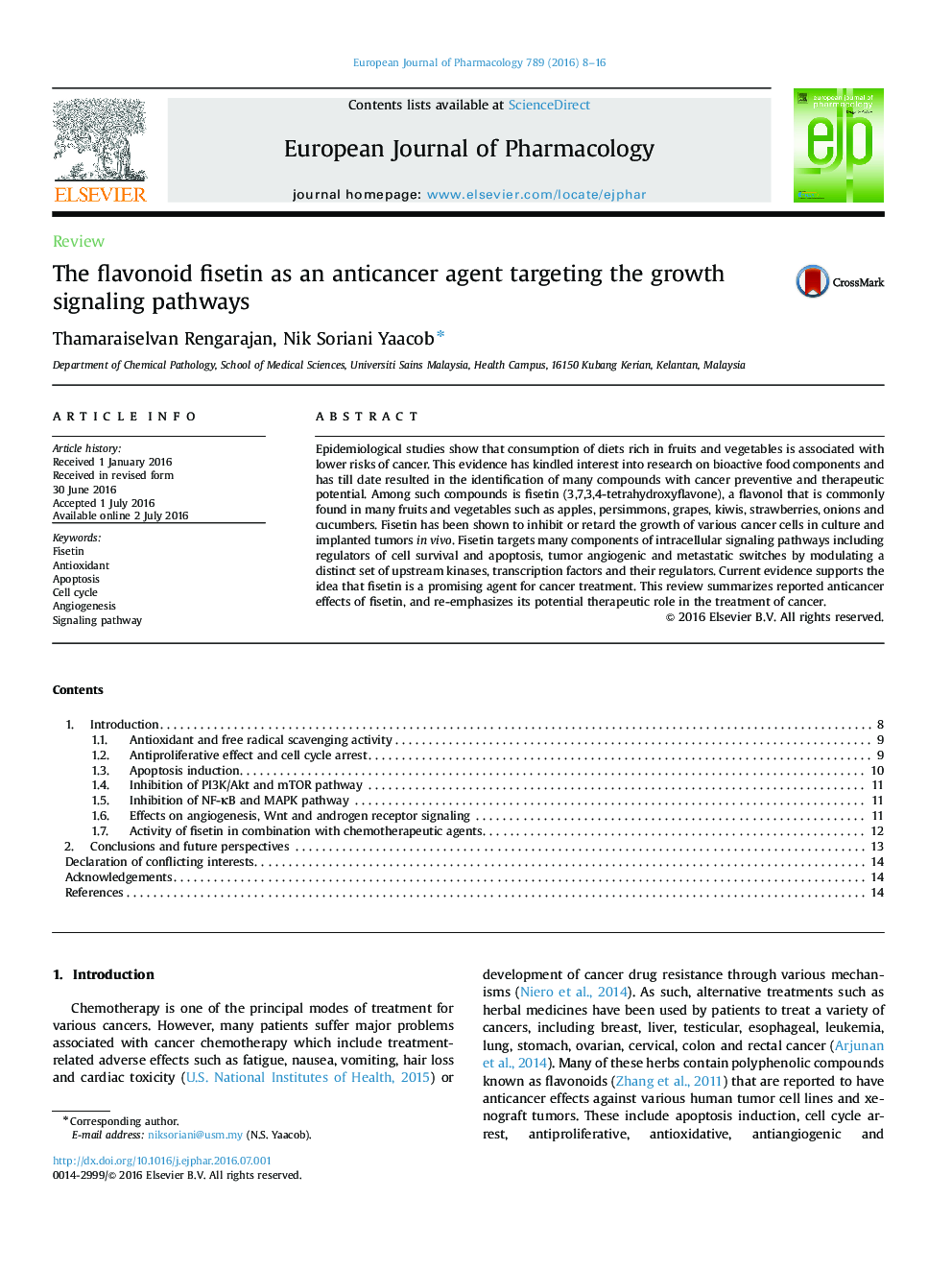| Article ID | Journal | Published Year | Pages | File Type |
|---|---|---|---|---|
| 2530810 | European Journal of Pharmacology | 2016 | 9 Pages |
Epidemiological studies show that consumption of diets rich in fruits and vegetables is associated with lower risks of cancer. This evidence has kindled interest into research on bioactive food components and has till date resulted in the identification of many compounds with cancer preventive and therapeutic potential. Among such compounds is fisetin (3,7,3,4-tetrahydroxyflavone), a flavonol that is commonly found in many fruits and vegetables such as apples, persimmons, grapes, kiwis, strawberries, onions and cucumbers. Fisetin has been shown to inhibit or retard the growth of various cancer cells in culture and implanted tumors in vivo. Fisetin targets many components of intracellular signaling pathways including regulators of cell survival and apoptosis, tumor angiogenic and metastatic switches by modulating a distinct set of upstream kinases, transcription factors and their regulators. Current evidence supports the idea that fisetin is a promising agent for cancer treatment. This review summarizes reported anticancer effects of fisetin, and re-emphasizes its potential therapeutic role in the treatment of cancer.
